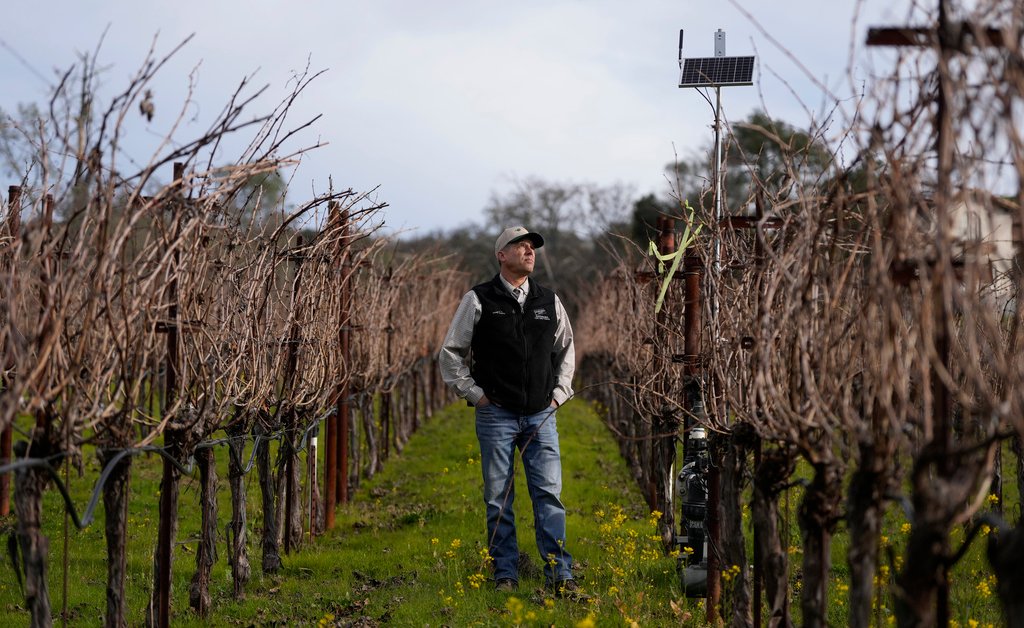In the wine industry, the use of artificial intelligence-backed technology is becoming more prevalent, with farmers like Tom Gamble embracing the benefits of AI in their vineyards. Gamble, a third-generation farmer in Napa Valley, has invested in an autonomous tractor that uses AI sensors to map his vineyard. This technology will allow Gamble to make more informed decisions about his crops through precision farming, ultimately leading to better crop management and increased efficiency.
The integration of AI in agriculture has the potential to revolutionize the way farmers operate, allowing them to cut back on waste and run more sustainable vineyards. By analyzing data collected by AI sensors, farmers can better manage water use, determine when to apply fertilizers or pest control products, and make more accurate predictions about crop yields. This not only leads to more efficient farming practices but also helps farmers comply with regulatory requirements and reduce pollution.
AI-backed tractors and irrigation systems have been particularly beneficial in helping farmers minimize water use by providing real-time data on soil and vine health. By leveraging AI technology, farmers can optimize their farming practices and make more strategic decisions that lead to higher crop yields with less environmental impact. This demonstrates the potential for AI to supplement labor without displacing a workforce, showcasing how technology can enhance traditional farming methods.
In addition to precision farming, other areas of the wine industry are also beginning to adopt AI technology. For example, generative AI is being used to create custom wine labels, adding a unique and personalized touch to wine products. As the wine industry continues to embrace AI innovations, businesses are finding new ways to enhance their products and services through technology, ultimately improving the overall customer experience and increasing operational efficiency.
Overall, the adoption of AI in the wine industry represents a shift towards more sustainable and efficient farming practices. Farmers like Tom Gamble are leading the way in integrating AI technology into their vineyards, recognizing the benefits of precision farming and data-driven decision-making. As AI continues to evolve, it is clear that businesses can successfully integrate technology to enhance traditional practices and improve overall productivity in the wine industry and beyond.









